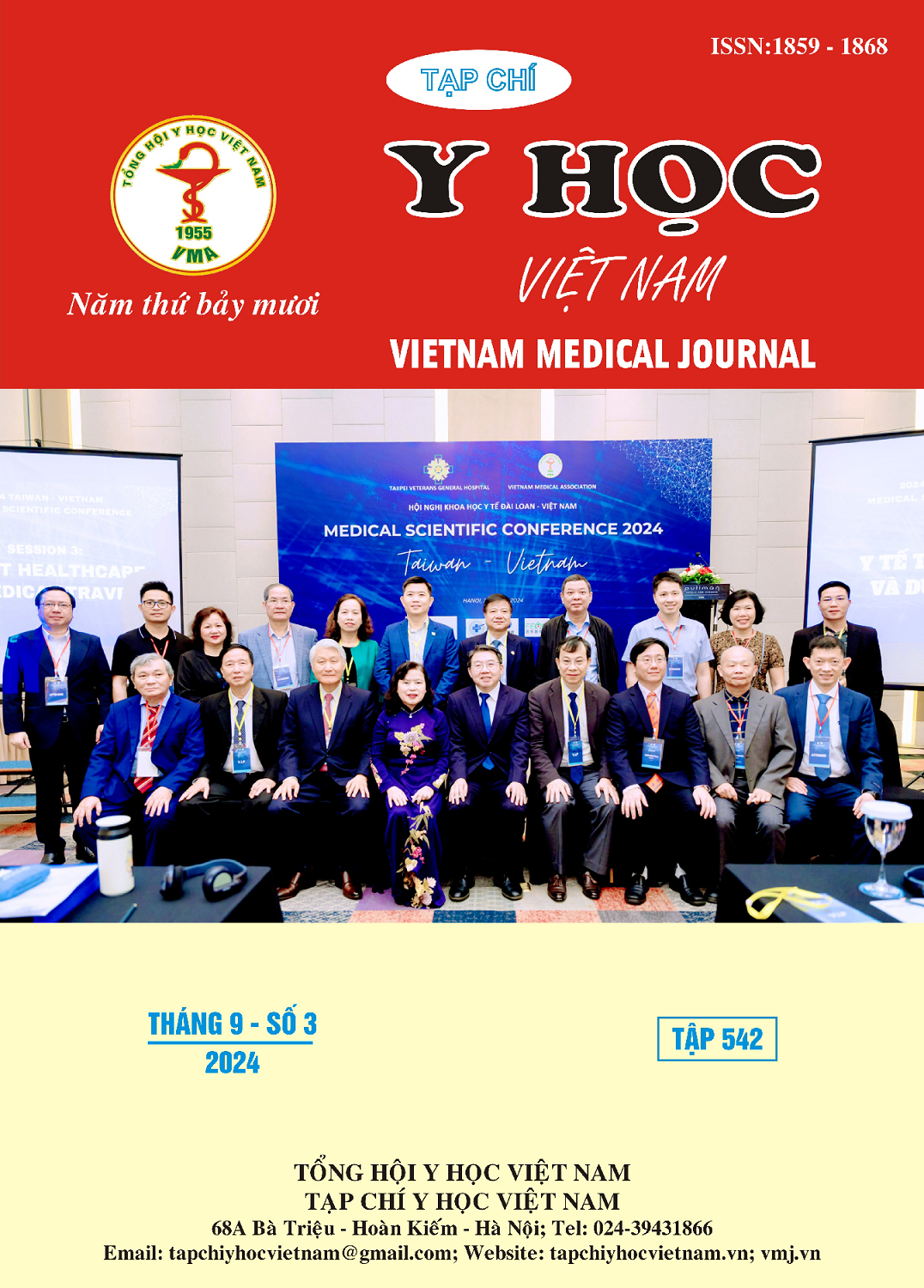TREATMENT OUTCOMES AND TOXICITY OF ORAL VINORELBINE MONOTHERAPY IN PATIENTS WITH RECURRENT AND METASTATIC BREAST CANCER DURING COVID-19 PANDEMIC
Main Article Content
Abstract
Background: Breast cancer ranks among the most prevalent cancers in women. There are many options of treatment for patients in stage IV. Many trials show the non inferior between oral and intravenous administration. Oral regimens show benefit in saving patient’s time, finance and covenience. However there are not many researches about efficacy and toxicity. Objective: Evaluate the efficacy and toxicity of oral vinorelbine monotherapy in treating patients with recurrent and metastatic breast cancer. Material and Methods: The study entails a case series of 23 patients diagnosed with recurrent/metastatic breast cancer confirmed via pathology and imaging, treated with oral vinorelbine monotherapy at the Oncology Center - Cho Ray Hospital from January 1, 2021, to December 31, 2021. Results: The average treatment duration was 4.7 months. The disease stabilization rate after 3 months was 52.2%, with partial response at 13% and complete response at 4.3%. The disease stabilization rate after 6 months was 40%. The median disease-free survival time was 4.0 months. Leukopenia toxicity was observed in 39.1%, with Grade 2 and 3 toxicities at 44.4% and 33.3% respectively. Elevated liver enzymes occurred in 34.8%, primarily Grade 1 at 87.5%. Conclusion: Vinorelbine monotherapy demonstrates favorable and well-tolerated treatment outcomes.
Article Details
Keywords
oral vinorelbine, breast cancer recurrence, metastasis
References
2. PF Conte1 and S Giovannelli. Oral vinorelbine in metastatic breast cancer: The Vienna experience. Breast Cancer Res. 2005. 7(Suppl 1), S25. doi: 10.1186/bcr1229.
3. Blum J. L. Xeloda in the treatment of metastatic breast cancer. Oncology. 1999. 57 Suppl 1, 16-20. DOI: 10.1159/000055264.
4. Feher O., Vodvarka P., Jassem J. First-line gemcitabine versus epirubicin in postmenopausal women aged 60 or older with metastatic breast cancer: a multicenter, randomized, phase III study. Annals of Oncology.2005. 16 (6), 899-908. DOI: 10.1093/annonc/mdi181
5. Jones S. E., Erban J.. Overmoyer B. Randomized phase III study of docetaxel compared with paclitaxel in metastatic breast cancer. J Clin Oncol. 2005. 23 (24), 5542-5551. DOI: 10.1200/JCO.2005.02.027
6. O'Brien M. E., Wigler N., Inbar M. Reduced cardiotoxicity and comparable efficacy in a phase III trial of pegylated liposomal doxorubicin HCl (CAELYX/Doxil) versus conventional doxorubicin for first-line treatment of metastatic breast cancer. Ann Oncol. 2004. 15 (3), 440-449. DOI: 10.1093/annonc/mdh097
7. Pajk B., Cufer T., Canney P. Anti-tumor activity of capecitabine and vinorelbine in patients with anthracycline- and taxane-pretreated metastatic breast cancer: findings from the EORTC 10001 randomized phase II trial. Breast. 2008. 17 (2), 180-185. DOI: 10.1016/j.breast.2007.09.002
8. Piccart-Gebhart M. J., Burzykowski T., Buyse M. Taxanes alone or in combination with anthracyclines as first-line therapy of patients with metastatic breast cancer. J Clin Oncol.2008. 26 (12), 1980-1986. DOI: 10.1200/ JCO.2007.10.8399
9. Ranson M. R., Carmichael J., O'Byrne K. Treatment of advanced breast cancer with sterically stabilized liposomal doxorubicin: results of a multicenter phase II trial. J Clin Oncol.1997. 15 (10), 3185-3191. DOI: 10.1200/ JCO.1997.15.10.3185


